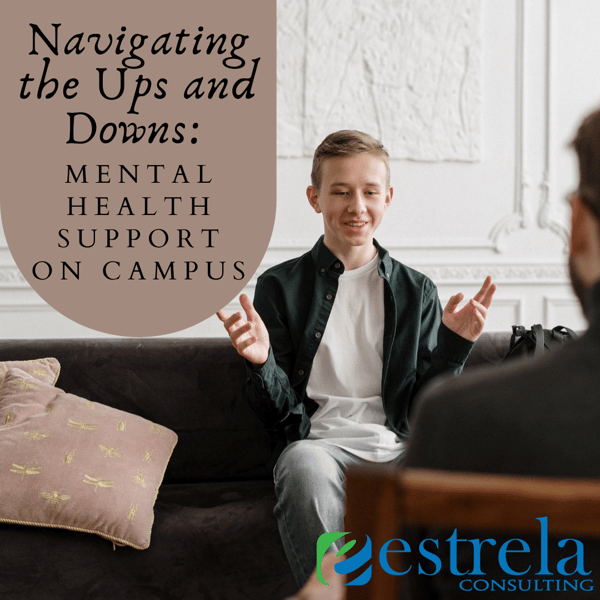
Each year on October 10th people around the world recognize World Mental Health Day, a day to recognize mental health advocacy and awareness. Within the world of higher education, mental health awareness has become of increasing importance. While the high school years can certainly be stressful, the college experience brings with it a whole new array of potential stressors. Living away from home, relationship struggles, increased academic rigor, and financial pressures can all increase the likelihood of a student developing anxiety or depression. Educating students about these potential stressors before they head off to college will help set them up for success. However, the preparation cannot stop there. Once on campus, students need to be aware of the services available to them and how to access those resources should they begin needing some extra support.
At the University of Pittsburgh, mental health support is given considerable attention. At the beginning of every school year, counselors from The University Counseling Center visit first-year student orientation sessions to let students know about the mental health services that are available on campus. Right from the start, students are shown that the university cares about their mental and emotional wellbeing and has resources available to help if things get tough.
In addition to increasing services and promoting awareness, many colleges have begun reducing or eliminating fees for counseling services. Efforts like these remove potential barriers that might otherwise keep students from seeking the help they need. At Ohio University, instead of charging individual fees for services, the university has recently begun requiring that all students take part in the Wellbeing plan. Previously, students were allowed to opt out of this plan. While mandating participation does come with a slight increase in fees, the benefits far outweigh the costs. No longer will students be required to pay money at the time of service; a previous practice that may have hindered some students from utilizing services.
As soon as a student has said “yes” to a college and has begun the enrollment process, it’s a good idea to develop a plan for accessing the mental health services offered by the university. No student is immune to the stress of college; therefore, it is important to understand what resources are available and how to use them before they’re actually needed.
Step 1: Figure Out Which Part of the University Oversees Mental Health Support
At some colleges, these services are offered as a part of the campus health center (i.e. physical health care). On other campuses, mental health support is provided by a designated, standalone counseling center. At others, mental health services are housed in the same building as the student fitness center or other related facility.
Step 2: Identify the Types of Services Offered
From playing with a cute puppy to knitting while sharing stories, there’s something out there for everyone!
Step 3: Accept That Everyone Needs Support at One Time or Another
Make a plan for when to seek out help and commit to following through. Learning how to self-advocate is a skill that is important for college and beyond. Taking these few simple steps will not only help increase success during the college years, but will purposefully set the stage for a lifetime of mental and emotional wellbeing.
If you or someone you know is in crisis, please contact the National Suicide Prevention Lifeline at 1-800-273-TALK (8255).

